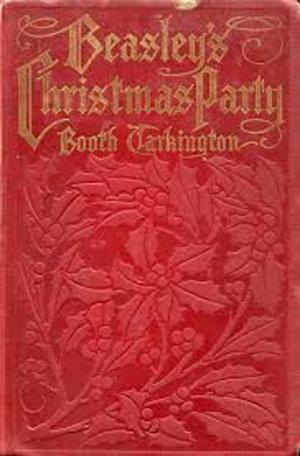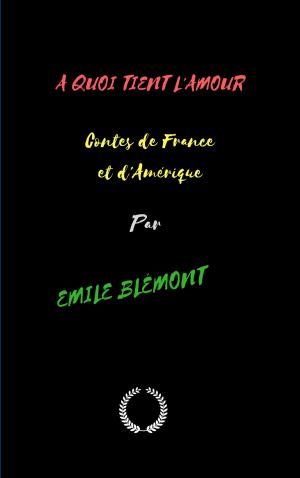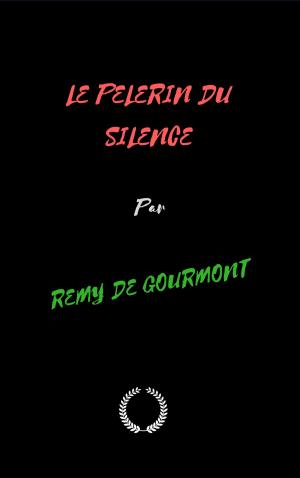| Author: | J. SHERIDAN LEFANU | ISBN: | 1230002425689 |
| Publisher: | Jwarlal | Publication: | July 13, 2018 |
| Imprint: | Language: | English |
| Author: | J. SHERIDAN LEFANU |
| ISBN: | 1230002425689 |
| Publisher: | Jwarlal |
| Publication: | July 13, 2018 |
| Imprint: | |
| Language: | English |
Mr. Marston's fortune, never very large, had been shattered by early dissipation. Naturally of a proud and somewhat exacting temper, he actively felt the mortifying consequences of his poverty. The want of what he felt ought to have been his position and influence in the county in which he resided, fretted and galled him; and he cherished a resentful and bitter sense of every slight, imaginary or real, to which the same fruitful source of annoyance and humiliation had exposed him. He held, therefore, but little intercourse with the surrounding gentry, and that little not of the pleasantest possible kind; for, not being himself in a condition to entertain, in that style which accorded with his own ideas of his station, he declined, as far as was compatible with good breeding, all the proffered hospitalities of the neighborhood; and, from his wild and neglected park, looked out upon the surrounding world in a spirit of moroseness and defiance, very unlike, indeed, to that of neighborly good-will.
In the midst, however, of many of the annoyances attendant upon crippled means, he enjoyed a few of those shadowy indications of hereditary importance, which are all the more dearly prized, as the substantial accessories of wealth have disappeared. The mansion in which he dwelt was, though old-fashioned, imposing in its aspect, and upon a scale unequivocally aristocratic; its walls were hung with ancestral portraits, and he managed to maintain about him a large and tolerably respectable staff of servants. In addition to these, he had his extensive demesne, his deer-park, and his unrivalled timber, wherewith to console himself; and, in the consciousness of these possessions, he found some imperfect assuagement of those bitter feelings of suppressed scorn and resentment, which a sense of lost station and slighted importance engendered. Mr. Marston's early habits had, unhappily, been of a kind to aggravate, rather than alleviate, the annoyances incidental to reduced means. He had been a gay man, a voluptuary, and a gambler. His vicious tastes had survived the means of their gratification. His love for his wife had been nothing more than one of those vehement and headstrong fancies, which, in self-indulgent men, sometimes result in marriage, and which seldom outlive the first few months of that life-long connection. Mrs. Marston was a gentle, noble-minded woman. After agonies or disappointment, which none ever suspected, she had at length learned to submit, in sad and gentle acquiescence, to her fate. Those feelings, which had been the charm of her young days, were gone, and, as she bitterly felt, forever. For them there was no recall they could not return; and, without complaint or reproach, she yielded to what she felt was inevitable. It was impossible to look at Mrs. Marston, and not to discern, at a glance, the ruin of a surpassingly beautiful woman; a good deal wasted, pale, and chastened with a deep, untold sorrow, but still possessing the outlines, both in face and form, of that noble beauty and matchless grace, which had made her, in happier days, the admired of all observers. But equally impossible was it to converse with her, for even a minute, without hearing, in the gentle and melancholy music of her voice, the sad echoes of those griefs to which her early beauty had been sacrificed, an undying sense of lost love, and happiness departed, never to come again.
One morning, Mr. Marston had walked, as was his custom when he expected the messenger who brought from the neighboring post office his letters, some way down the broad, straight avenue, with its double rows of lofty trees at each side, when he encountered the nimble emissary on his return. He took the letter-bag in silence. It contained but two letters—one addressed to "Mademoiselle de Barras, chez M. Marston," and the other to himself. He took them both, dismissed the messenger, and opening that addressed to himself, read as follows, while he slowly retraced his steps towards the house
Mr. Marston's fortune, never very large, had been shattered by early dissipation. Naturally of a proud and somewhat exacting temper, he actively felt the mortifying consequences of his poverty. The want of what he felt ought to have been his position and influence in the county in which he resided, fretted and galled him; and he cherished a resentful and bitter sense of every slight, imaginary or real, to which the same fruitful source of annoyance and humiliation had exposed him. He held, therefore, but little intercourse with the surrounding gentry, and that little not of the pleasantest possible kind; for, not being himself in a condition to entertain, in that style which accorded with his own ideas of his station, he declined, as far as was compatible with good breeding, all the proffered hospitalities of the neighborhood; and, from his wild and neglected park, looked out upon the surrounding world in a spirit of moroseness and defiance, very unlike, indeed, to that of neighborly good-will.
In the midst, however, of many of the annoyances attendant upon crippled means, he enjoyed a few of those shadowy indications of hereditary importance, which are all the more dearly prized, as the substantial accessories of wealth have disappeared. The mansion in which he dwelt was, though old-fashioned, imposing in its aspect, and upon a scale unequivocally aristocratic; its walls were hung with ancestral portraits, and he managed to maintain about him a large and tolerably respectable staff of servants. In addition to these, he had his extensive demesne, his deer-park, and his unrivalled timber, wherewith to console himself; and, in the consciousness of these possessions, he found some imperfect assuagement of those bitter feelings of suppressed scorn and resentment, which a sense of lost station and slighted importance engendered. Mr. Marston's early habits had, unhappily, been of a kind to aggravate, rather than alleviate, the annoyances incidental to reduced means. He had been a gay man, a voluptuary, and a gambler. His vicious tastes had survived the means of their gratification. His love for his wife had been nothing more than one of those vehement and headstrong fancies, which, in self-indulgent men, sometimes result in marriage, and which seldom outlive the first few months of that life-long connection. Mrs. Marston was a gentle, noble-minded woman. After agonies or disappointment, which none ever suspected, she had at length learned to submit, in sad and gentle acquiescence, to her fate. Those feelings, which had been the charm of her young days, were gone, and, as she bitterly felt, forever. For them there was no recall they could not return; and, without complaint or reproach, she yielded to what she felt was inevitable. It was impossible to look at Mrs. Marston, and not to discern, at a glance, the ruin of a surpassingly beautiful woman; a good deal wasted, pale, and chastened with a deep, untold sorrow, but still possessing the outlines, both in face and form, of that noble beauty and matchless grace, which had made her, in happier days, the admired of all observers. But equally impossible was it to converse with her, for even a minute, without hearing, in the gentle and melancholy music of her voice, the sad echoes of those griefs to which her early beauty had been sacrificed, an undying sense of lost love, and happiness departed, never to come again.
One morning, Mr. Marston had walked, as was his custom when he expected the messenger who brought from the neighboring post office his letters, some way down the broad, straight avenue, with its double rows of lofty trees at each side, when he encountered the nimble emissary on his return. He took the letter-bag in silence. It contained but two letters—one addressed to "Mademoiselle de Barras, chez M. Marston," and the other to himself. He took them both, dismissed the messenger, and opening that addressed to himself, read as follows, while he slowly retraced his steps towards the house















